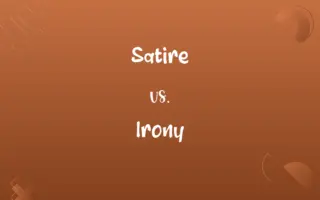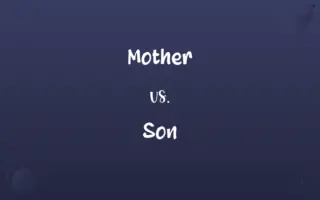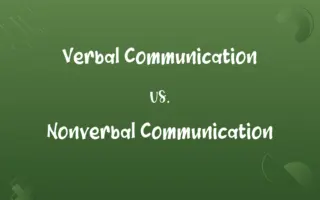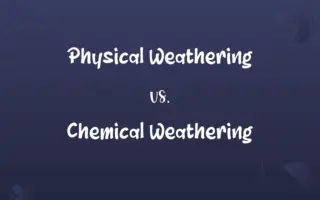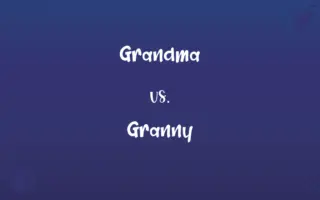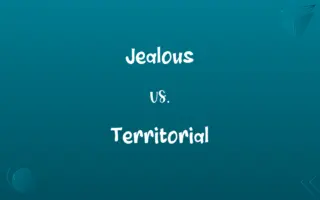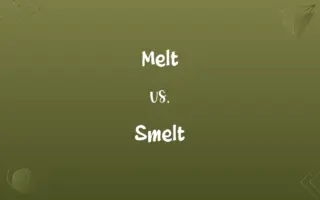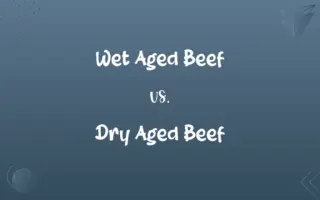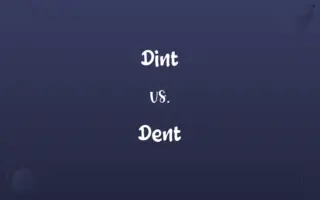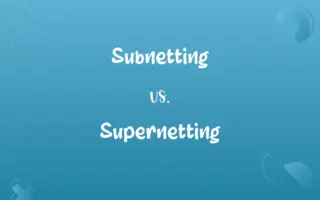Uniformitarianism vs. Catastrophism: Know the Difference

By Shumaila Saeed || Published on January 10, 2024
Uniformitarianism suggests geological processes occur at a consistent rate, while Catastrophism posits that Earth's features are formed by sudden, short-lived, violent events.
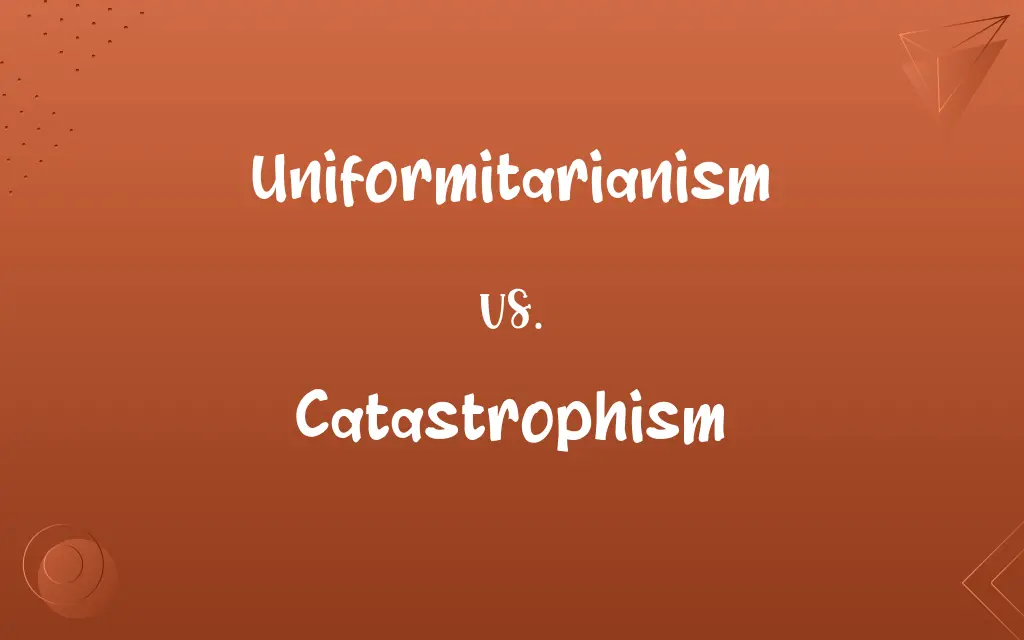
Key Differences
Uniformitarianism, founded by James Hutton, proposes that the same natural laws and processes operating in our present-day environment have always operated in the universe in the past and apply everywhere in the universe. Catastrophism, contrastingly, was initially associated with Georges Cuvier, suggesting that Earth's landscape was shaped by sudden, short-lived, violent events, possibly worldwide in scope.
Shumaila Saeed
Jan 10, 2024
Uniformitarianism emphasizes gradualism, the idea that minute, incremental changes over vast periods are responsible for the current shape of the Earth. Catastrophism, however, argues that geological epochs ended in violent and sudden catastrophes, like floods and volcanic eruptions, leading to mass extinctions and the formation of major geological features.
Shumaila Saeed
Jan 10, 2024
Uniformitarianism is often seen as an embodiment of the Enlightenment's rationalism, emphasizing steady progress and continuity. Catastrophism, in contrast, has roots in biblical catastrophes, such as the story of Noah's Flood, reflecting a more dramatic, episodic view of history.
Shumaila Saeed
Jan 10, 2024
Initially, uniformitarianism was a dominant theory in geology, influencing Charles Darwin and his theory of evolution. Over time, however, geologists recognized that both uniformitarianism and catastrophism play a role in the Earth's geological history, leading to a more integrative approach in modern geology.
Shumaila Saeed
Jan 10, 2024
Today, geologists view the Earth's history as influenced by both uniformitarian and catastrophic events. This modern synthesis acknowledges that while many geological processes are slow and gradual, catastrophic events like meteor impacts, massive volcanic eruptions, and great floods have also significantly shaped Earth's landscape and life.
Shumaila Saeed
Jan 10, 2024
ADVERTISEMENT
Comparison Chart
ADVERTISEMENT
Uniformitarianism and Catastrophism Definitions
Uniformitarianism
It's the idea that the same natural laws and processes that operate in the universe now have always operated in the universe in the past.
The formation of river valleys through continuous water flow is an example of uniformitarianism.
Shumaila Saeed
Dec 28, 2023
Catastrophism
Catastrophism posits that many of Earth's crustal features were formed in relatively short, violent events.
The abrupt appearance of a mountain range due to tectonic shifts is an instance of catastrophism.
Shumaila Saeed
Dec 28, 2023
Uniformitarianism
Uniformitarianism is the principle that Earth's processes occurred the same way in the past as they do today.
The gradual erosion of a mountain over millions of years showcases uniformitarianism.
Shumaila Saeed
Dec 28, 2023
Catastrophism
Catastrophism is the theory that Earth's features are formed in sudden, short-lived, violent events.
The sudden creation of a canyon by a catastrophic flood demonstrates catastrophism.
Shumaila Saeed
Dec 28, 2023
Uniformitarianism
Uniformitarianism asserts that changes in the Earth's crust are the result of continuous and uniform processes.
The slow deposition of sediment layers in a delta exemplifies uniformitarianism.
Shumaila Saeed
Dec 28, 2023
ADVERTISEMENT
Catastrophism
It suggests that Earth's geology is largely shaped by sudden, catastrophic events like floods and volcanic eruptions.
The rapid formation of volcanic islands is a result of catastrophism.
Shumaila Saeed
Dec 28, 2023
Uniformitarianism
It suggests that current geological processes, occurring at the same rates observed today, account for all of Earth's geological features.
The gradual uplift of mountain ranges is a process explained by uniformitarianism.
Shumaila Saeed
Dec 28, 2023
Catastrophism
It emphasizes the role of sudden and violent natural disasters in shaping the Earth's surface.
The rapid carving of landscapes by glacial retreats is indicative of catastrophism.
Shumaila Saeed
Dec 28, 2023
Uniformitarianism
Uniformitarianism is the assumption that the natural processes operating in the past are the same as those that can be observed operating in the present.
The continuous formation of soil from rock weathering is a classic case of uniformitarianism.
Shumaila Saeed
Dec 28, 2023
Catastrophism
Catastrophism holds that the history of Earth is marked by recurrent, large-scale catastrophes.
The mass extinction at the end of the Cretaceous period is often cited as an example of catastrophism.
Shumaila Saeed
Dec 28, 2023
Uniformitarianism
The theory that all geologic phenomena may be explained as the result of existing forces having operated uniformly from the origin of the earth to the present time.
Shumaila Saeed
Dec 27, 2023
Catastrophism
The doctrine that major changes in the earth's crust result from sudden catastrophes, such as the impact of a large meteor, rather than from gradual evolutionary processes.
Shumaila Saeed
Dec 27, 2023
Uniformitarianism
The scientific principle that natural processes operated in the past in the same way and at the same rates that they operate today.
Shumaila Saeed
Dec 27, 2023
Catastrophism
The doctrine that changes in the earth's fauna and flora result from major catastrophic events that cause the die-off of many organisms and are followed by the appearance of new types of organisms.
Shumaila Saeed
Dec 27, 2023
Catastrophism
The prediction or expectation of cataclysmic upheaval, as in political or social developments.
Shumaila Saeed
Dec 27, 2023
Catastrophism
(geology) The doctrine that sudden catastrophes, rather than continuous change, cause the main features of the Earth's crust.
Shumaila Saeed
Dec 27, 2023
Catastrophism
(biology) The doctrine that, in addition to the more gradual effects of evolution, huge catastrophic events shape the earth's flora and fauna by causing major die-offs which make way for the emergence of new organisms.
Shumaila Saeed
Dec 27, 2023
Catastrophism
The practice or tendency of catastrophizing, regarding bad things as catastrophic.
Shumaila Saeed
Dec 27, 2023
Catastrophism
The doctrine that the geological changes in the earth's crust have been caused by the sudden action of violent physical causes; - opposed to the doctrine of uniformism.
Shumaila Saeed
Dec 27, 2023
Repeatedly Asked Queries
Can uniformitarianism explain all geological features?
While it explains many features, some, like meteor impacts, require catastrophic explanations.
Shumaila Saeed
Jan 10, 2024
What is uniformitarianism?
Uniformitarianism is the theory that Earth's geological processes occur at consistent, gradual rates, similar to those observed today.
Shumaila Saeed
Jan 10, 2024
What is an example of uniformitarianism?
The slow erosion of a river valley over millions of years exemplifies uniformitarianism.
Shumaila Saeed
Jan 10, 2024
How does uniformitarianism relate to the age of Earth?
Uniformitarianism suggests a very old Earth, shaped by slow and gradual processes over vast time periods.
Shumaila Saeed
Jan 10, 2024
Who proposed uniformitarianism?
James Hutton, a Scottish geologist, first proposed uniformitarianism in the late 18th century.
Shumaila Saeed
Jan 10, 2024
Can uniformitarianism and catastrophism coexist?
Modern geology integrates both, recognizing that Earth's history involves gradual processes punctuated by catastrophic events.
Shumaila Saeed
Jan 10, 2024
What is catastrophism?
Catastrophism is the theory that Earth's geological features are primarily formed by sudden, short-lived, violent events.
Shumaila Saeed
Jan 10, 2024
How does catastrophism view Earth's history?
Catastrophism views Earth's history as shaped by irregular, catastrophic events causing abrupt changes.
Shumaila Saeed
Jan 10, 2024
Who is associated with catastrophism?
Georges Cuvier, a French naturalist, is a key figure in the development of catastrophism.
Shumaila Saeed
Jan 10, 2024
How did catastrophism relate to religious beliefs?
Originally, catastrophism was often linked with biblical events like Noah's Flood.
Shumaila Saeed
Jan 10, 2024
What is an example of catastrophism?
The formation of a new island due to a volcanic eruption is an example of catastrophism.
Shumaila Saeed
Jan 10, 2024
What role do these theories play in environmental studies?
They provide a framework for understanding Earth's past environment, helping predict future changes.
Shumaila Saeed
Jan 10, 2024
How do these theories impact our understanding of natural disasters?
They help in understanding that both gradual and sudden processes can lead to natural disasters.
Shumaila Saeed
Jan 10, 2024
Are there any modern examples of catastrophism?
Yes, events like the 2004 Indian Ocean tsunami are modern examples of catastrophism.
Shumaila Saeed
Jan 10, 2024
Is catastrophism still a relevant theory?
Yes, modern geology acknowledges that both uniformitarianism and catastrophism play roles in Earth's geological history.
Shumaila Saeed
Jan 10, 2024
Did uniformitarianism influence evolutionary theory?
Yes, Charles Darwin's theory of evolution was influenced by the principles of uniformitarianism.
Shumaila Saeed
Jan 10, 2024
Does uniformitarianism apply to biological processes?
While primarily a geological concept, it implies a steady, gradual change in biological processes too.
Shumaila Saeed
Jan 10, 2024
Does modern catastrophism rely on religious explanations?
No, modern catastrophism is based on scientific evidence of catastrophic events like asteroid impacts.
Shumaila Saeed
Jan 10, 2024
Has the concept of uniformitarianism evolved?
Yes, it has evolved to include the recognition of occasional catastrophic events in Earth's history.
Shumaila Saeed
Jan 10, 2024
Are uniformitarianism and catastrophism mutually exclusive?
No, they are now seen as complementary, with both gradual and catastrophic processes shaping Earth's history.
Shumaila Saeed
Jan 10, 2024
Share this page
Link for your blog / website
HTML
Link to share via messenger
About Author
Written by
Shumaila SaeedShumaila Saeed, an expert content creator with 6 years of experience, specializes in distilling complex topics into easily digestible comparisons, shining a light on the nuances that both inform and educate readers with clarity and accuracy.

